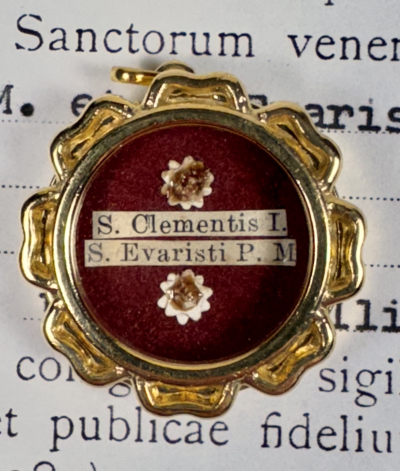Saint Clement of Rome (†c. 100 AD), also known as Pope Clement I, was a bishop of Rome in the late first century AD. He is considered to be the first of the Apostolic Fathers of the Church and a leading member of the Church in Rome in the late 1st century. Tertullian claimed that Clement was ordained by Saint Peter. Early church lists place him as the second or third bishop of Rome. According to apocryphal stories dating back to the 4th century by authors such as Rufinus, Clement was imprisoned by Roman Emperor Trajan, and was executed by being tied to an anchor and thrown into the sea. The only known genuine extant writing of Clement is his letter to the church at Corinth in response to a dispute in which certain presbyters of the Corinthian church had been deposed. He asserted the authority of the presbyters as rulers of the church because they had been appointed by the Apostles. His letter, one of the oldest extant Christian documents outside the New Testament, was read in the church at Corinth, along with other epistles, some of which later became part of the Christian canon. This letter is considered to be the earliest affirmation of the principle of apostolic succession. Clement is recognized as a saint in many Christian churches and a patron saint of mariners. He is commemorated on 23 November in the Catholic Church, the Anglican Communion, and the Lutheran Church. In Eastern Orthodox Christianity, his feast is held on 25 November.
Saint Pope Evaristus (†107/108) was the bishop of Rome from c. 99/100 to his death. He was also known as Aristus and is venerated as a saint in the Eastern Orthodox Church, the Catholic Church, and Oriental Orthodoxy. John the Apostle likely died during his reign period, marking the end of the Apostolic Age. Pope Evaristus is buried near the body of Saint Peter in the Vatican, in Saint Peter's tomb under the Saint Peter's Basilica. His Feast Day is commemorated on 26 October.






 Change language to English
Change language to English